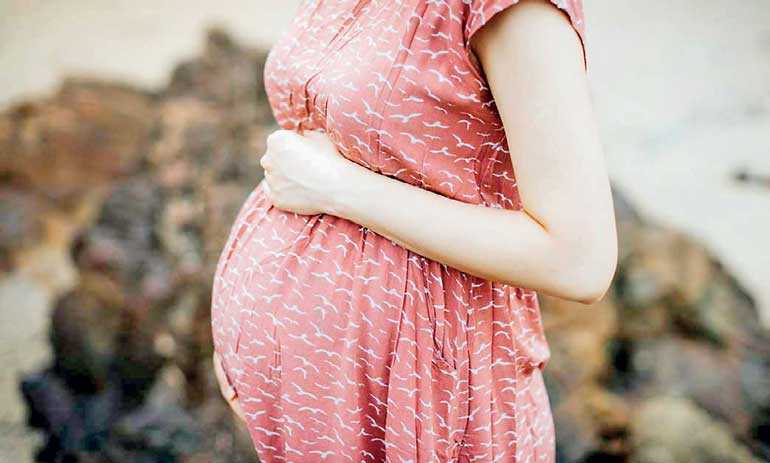Friday Feb 27, 2026
Friday Feb 27, 2026
Tuesday, 6 April 2021 01:18 - - {{hitsCtrl.values.hits}}

Not a single COVID-19 death has been reported from the 130 COVID-19-positive pregnant women in the country, the Family Health Bureau said yesterday.
At a press briefing to make clarifications about the ‘Direct and Indirect Effects of the COVID-19 Pandemic and Response in South Asia’ report published by UNICEF in March, Family Health Promotion Director Dr. Chitramali de Silva said that to her knowledge only two new-born babies had died of COVID-19. This was also due to a delay in accessing medical care services.
She explained that between 2,500 and 3,000 infant deaths occur annually, but that analysis of data gathered during the past year had shown no increase of infant deaths due to the pandemic.
Regarding the number of COVID-positive pregnant women, Dr. de Silva said: “It is not a small number and we have to provide special care for these mothers but none of them died.”
She explained that the Health Ministry, Family Health Bureau, development partners and professional colleges established a good mechanism to respond to the pandemic and maintain essential maternal and child health services.
“We started to act when the first COVID-19 positive case was reported in Sri Lanka and we developed a lot of guidelines on how the maternal and child health services should be implemented across the country,” she explained.
Health services were developed for COVID-19-positive pregnant mothers, new-born babies and children, as well as those suspected of having COVID-19, those undergoing quarantine and those who arrived from abroad.
“We had to categorise these groups separately and provide a network of care for all of them,” the Family Health Bureau Director said, adding that eight hospitals equipped with the necessary facilities were dedicated to provide care for COVID-19-positive pregnant women.
She went on to say that every provincial general hospital and district general hospital had special isolation centres to treat pregnant women suspected of having COVID-19.
“Sri Lanka is and remains an excellent example of how a strong, well-developed primary healthcare system can control and curtail an infectious disease outbreak,” UNICEF – Sri Lanka Active Country Representative Emma Brigham said.
With regard to the report published by UNICEF, Health Ministry and UNICEF representatives clarified that the estimated number of maternal deaths in Sri Lanka increased by only one during January 2020 and June 2021 in comparison to the same period in 2019.
The clarification was issued after estimates published in the ‘Direct and Indirect Effects of the COVID-19 Pandemic and Response in South Asia’ caused concern among the public.
Brigham stressed the numbers published in the report were merely estimates based on modelling, which has its limitations, despite playing an important role during the pandemic by providing important insights.
“In 2020, UNICEF commissioned a modelling exercise to estimate some of the effects for mothers and children in South Asia. This modelling was done by SickKids Centre for Global Child Health. In March 2021, UNICEF released the report and this showed areas for significant concern,” Brigham said.
She added that the modelling exercise estimated that 228,000 more children had died in 2020 than in 2019 and that 11,000 more women died in 2020 than in 2019 across South Asia as a whole because of the effects of the pandemic.
The limitations of the modelling exercise were overlooked when the findings were published by the media, Brigham said, adding: “In Sri Lanka, the number that has caused particular concern was the estimate of how many mothers died in 2020. The model estimated the number of deaths as an additional 20 mothers between January 2020 and June 2021.”
This, she said, understandably, caused a lot of concern within Government, by the media and amongst the public. UNICEF has since worked with the modellers to generate updated estimates for Sri Lanka. “Those updated estimates look much more positive than the earlier estimates,” Brigham added.
According to a joint press release by UNICEF and the Health Ministry yesterday, more data was applied to generate the updated estimates, which shows only one additional maternal death between January 2020 and June 2021 compared to the same period in 2019.
“This is substantially lower than what was predicted by the original model. It must be reiterated that, like the original estimate, this is a model-based estimate only,” the statement read.